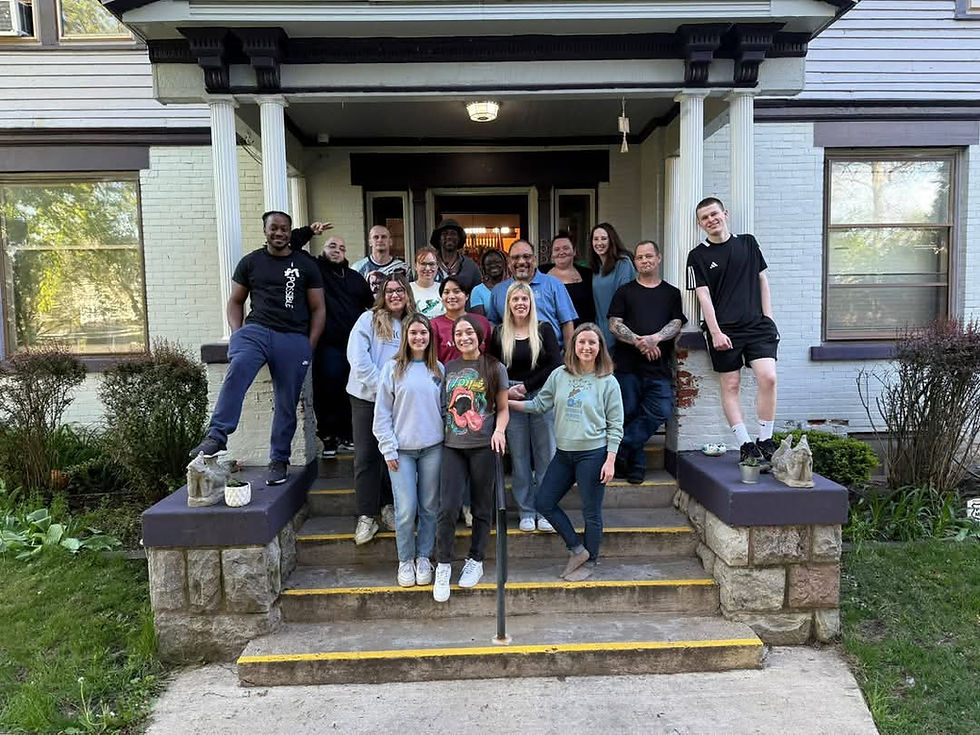The Importance of Proximity
- ahuxhold
- Jul 13, 2025
- 2 min read
by Executive Director Andee Huxhold
Bryan Stevenson says, "We have to get proximate to the people and the communities we care about."
His words didn’t just inspire me — they helped shape the entire course of my education and my life’s work. It was Bryan’s call to proximity that guided me through my master’s degree in public policy with a concentration in justice reform, where I spent years studying inhumane prison conditions, wrongful convictions, and the immense challenges of reentry.
I believed that if I understood the system deeply enough — if I mastered the policies and the data — I could help change it. But what I’ve learned is that nothing compares to being in true proximity: sharing space and building relationships with the people most directly impacted.
I learn from our residents every single day. They remind me of my privilege in ways no textbook ever could.
I’ve learned that some residents aren’t sure whether cheesecake needs to be refrigerated — after years of navigating questionable prison food, their bodies can handle things most of us would never risk after three days on the counter.
I’ve learned about the painful reality of limited access to menstrual hygiene products in prison — a basic dignity many of us take for granted.
I’ve learned what real resilience looks like, and how deeply systems have failed people long before they ever stepped into a cell.
Proximity doesn’t just inform my perspective — it transforms it. It reduces stigma by turning abstract “issues” into human experiences, full of complexity and dignity. It reminds me daily to check my privilege, to listen deeply, and to continuously refine our programs to meet real needs rather than assumptions.
True proximity demands that we show up fully, that we allow our assumptions to be shattered, and that we remain open to discomfort as we move toward justice.
At Dismas House, we strive to create spaces where this kind of connection can happen — not just for staff, but for volunteers, supporters, and community members. Because the more we listen, the more we understand. And the more we understand, the more effectively we can work toward a community where everyone belongs.


Comments